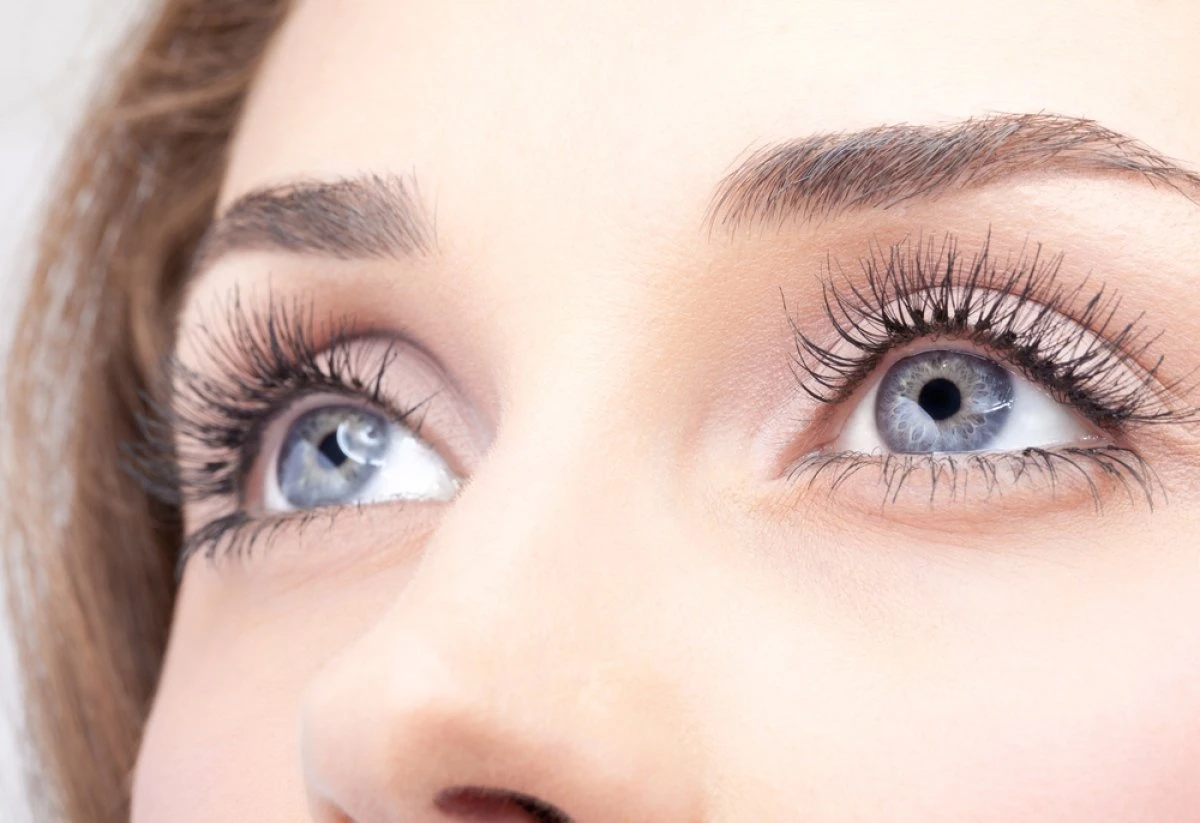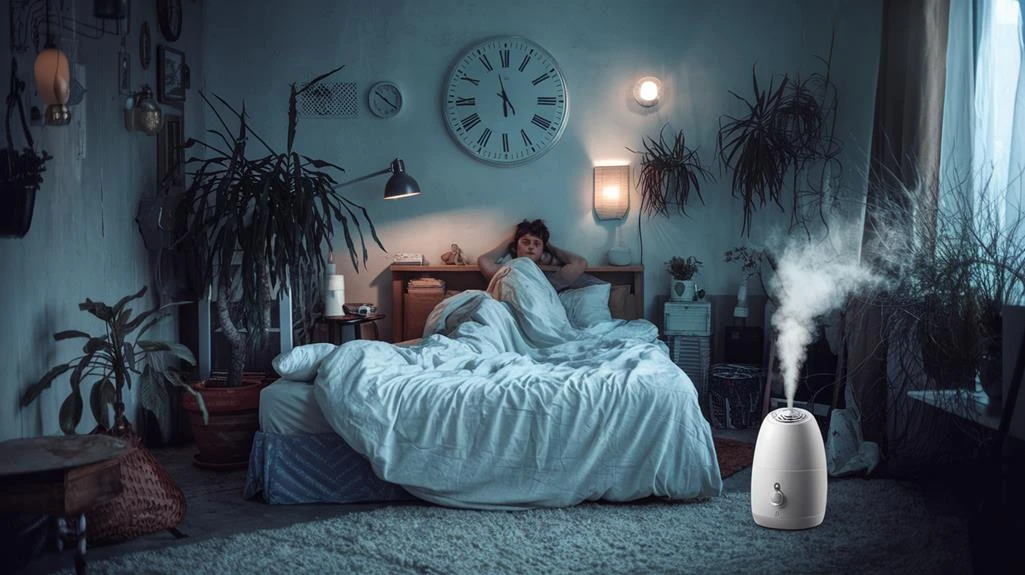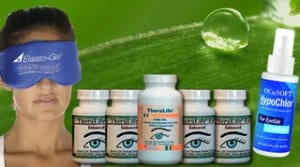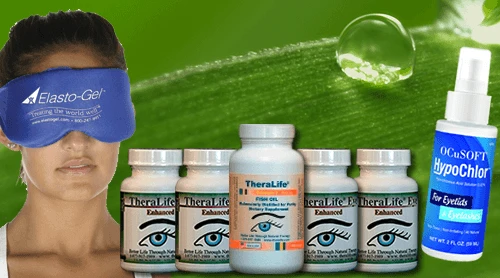Theralife.com offers a range of products that significantly benefit customers by addressing and alleviating various eye-related conditions, especially those exacerbated by dry eyes. Their comprehensive solutions target issues like dry eye disease, blepharitis, and uveitis, which can severely impact sleep quality. By promoting natural tear production and reducing inflammation, Theralife’s products help improve ocular health, leading to more restful sleep.
Theralife’s approach involves using natural ingredients to soothe and treat eye conditions at home, providing relief from discomfort and preventing recurrent issues such as chalazion and eyelash mites. Their innovative formulas are designed to enhance hydration and reduce dependency on artificial tears, making them ideal for individuals dealing with environmental factors like low humidity and excessive screen time.
For those suffering from specific conditions like Sjögren’s syndrome or rosacea-related dry eyes, Theralife offers targeted supplements and dietary recommendations to support overall eye health. Their products are also beneficial for managing baby eye discharge and for individuals with rheumatoid arthritis who may experience related eye symptoms.
By using Theralife’s products, customers can experience a reduction in nighttime awakenings and discomfort, thus achieving better sleep quality. The company provides valuable resources and guides on their website, helping users understand the importance of proper hydration and how to effectively manage eye conditions that disrupt sleep.
Amazing Oral Dry Eye Relief From TheraLife
When eye drops no longer work for dry eyes.
Come to TheraLife
Oral dry eye treatment from inside out.
Add To Cart
Key Takeaways
- Dryness causes eye irritation, leading to frequent awakenings and disrupted sleep cycles.
- Reduced nighttime tear production exacerbates dry eye symptoms, impacting sleep quality.
- Environmental factors like dry air increase ocular dryness, contributing to restless nights.
- Dehydration impairs kidney function, leading to increased nocturia and compromised sleep.
- Nocturnal lagophthalmos worsens eye dryness, preventing full eyelid closure and disturbing sleep.
The Impact of Dry Eyes
Understanding the relationship between dry eyes and sleep quality is essential for addressing the discomfort that many individuals experience. Dry eye disease can considerably affect your sleep quality by causing irritation and frequent awakenings.
During the night, a natural decrease in tear production exacerbates dry eye symptoms, making it challenging to maintain a restful sleep cycle. This reduction in tear production leads to increased discomfort and irritation, which can disrupt your sleep and leave you feeling unrested.
Additionally, complications such as meibomian gland dysfunction can further aggravate symptoms, leading to crusty eye discharge and inflammation. Nocturnal lagophthalmos, where you might sleep with your eyes partially or fully open, further worsens dry eye symptoms. This condition can lead to increased exposure of the ocular surface, causing discomfort and further diminishing sleep quality.
Research indicates that 36.4% of individuals with dry eye disease report poor sleep quality, highlighting the considerable relationship between these two conditions.
Effective management of dry eye symptoms is imperative for improving your sleep quality. Addressing these symptoms not only alleviates discomfort but also helps maintain a healthy sleep cycle.
Inadequate sleep can impair tear production even further, exacerbating dryness and creating a vicious cycle of poor sleep and worsening symptoms. As a result, prioritizing effective management strategies is essential for breaking this cycle and enhancing overall well-being.
Causes of Dryness During Sleep
A myriad of factors can contribute to dryness during sleep, considerably affecting your overall restfulness. Environmental factors, such as exposure to dry air, wind, and smoke, increase tear evaporation, leading to dry eye symptoms that disrupt your sleep. The reduced humidity in your sleeping environment might exacerbate these symptoms, causing you to experience poor sleep quality.
In addition, extended screen time before bed decreases your blinking frequency, resulting in dryness and discomfort that could trigger frequent awakenings.
Aging plays a significant role as well. As you age, tear production naturally diminishes, making you more vulnerable to dry eyes and potential sleep disturbances. This age-related decline in tear production can be compounded by medical conditions like Sjögren’s syndrome and diabetes, which further impair tear production and exacerbate dryness, negatively impacting your sleep.
Nocturnal lagophthalmos, a condition where your eyes remain partially open while sleeping, can worsen dry eye symptoms, leading to fragmented sleep. This incomplete closure of the eyelids can disrupt tear film stability, resulting in dryness and reduced sleep efficiency.
Understanding these factors can help you mitigate their effects and improve your sleep quality.
Signs of Sleep Disruption
You might notice symptoms of sleep disruption such as frequent awakenings, difficulty maintaining sleep, and daytime fatigue, which are often linked to dryness-related discomfort.
Evidence shows that dryness, particularly in the eyes, can exacerbate these issues by interrupting sleep cycles and causing restless nights.
For individuals with autoimmune conditions like Sjogren’s syndrome or rheumatoid arthritis, eye dryness can be more pronounced, further contributing to sleep disturbances.
Additionally, conditions like nocturnal lagophthalmos can increase ocular dryness and irritation, further impacting your sleep quality.
Symptoms of Sleep Disruption
Frequently, symptoms of sleep disruption manifest as frequent awakenings during the night, a condition often exacerbated by the discomfort of dry eyes.
This discomfort isn’t just a minor inconvenience—it greatly affects your overall sleep quality. Individuals with dry eye disease (DED) report a higher incidence of poor sleep quality, with studies revealing that 36.4% of those with DED experience sleep disturbances.
This correlation between dry eye symptoms and sleep disruption is essential, as it highlights the potential for incomplete sleep cycles and a feeling of unrested sleep.
The discomfort associated with dry eyes can cause you to wake up more frequently, contributing to sleep fragmentation and decreased sleep efficiency.
Understanding these symptoms is vital for managing both dry eye and its impact on sleep. Here are some key symptoms to watch for:
- Frequent awakenings during the night, often linked to DED symptoms.
- Difficulty maintaining a consistent sleep pattern, leading to unrested mornings.
- Increased risk of disrupted sleep patterns in individuals with severe DED.
Causes of Restless Nights
Understanding the symptoms of sleep disruption naturally leads to examining the underlying causes of restless nights. Dry eyes considerably contribute to poor sleep quality, as discomfort can arouse you from sleep, disrupting your sleep cycle.
Conditions like nocturnal lagophthalmos, where your eyes don’t fully close during the night, exacerbate dryness, leading to increased awakenings. This discomfort isn’t merely anecdotal; a study showed that 36.4% of individuals with dry eyes reported poor sleep quality, compared to only 24.8% in those without.
Sleep deprivation itself can impair the function of your lacrimal glands, diminishing tear production and perpetuating a cycle of dryness and discomfort. This cycle not only impacts sleep but also intensifies the symptoms of dry eyes, making restful nights elusive.
Additionally, environmental factors such as dry air contribute to ocular dryness, while excessive screen time can strain your eyes, leading to irritation that persists into the night.
Role of Hydration in Sleep
You mightn’t realize it, but maintaining proper hydration is essential for ideal sleep quality, as it prevents disruptions from conditions like xerostomia.
During sleep, your body releases vasopressin to conserve water, underscoring the need for adequate fluid intake throughout the day.
Hydration’s Impact on Rest
Ideal hydration plays an essential role in enhancing sleep quality. Adequate hydration guarantees your body functions effectively, with dehydration leading to disruptive symptoms like dry mouth and headaches, which can hinder restful sleep.
The hormone vasopressin, important for water retention, is released during sleep. Maintaining proper hydration supports vasopressin levels, greatly impacting overall sleep quality. Additionally, chronic dehydration may impair kidney function, disrupting sleep patterns and exacerbating dehydration issues.
To prevent such disturbances, maintaining a hydration schedule throughout the day is essential. This approach curtails nighttime thirst, reducing the need for frequent bathroom trips and promoting uninterrupted sleep.
Consider these evidence-based insights:
- Hydration and Sleep Quality: Adequate hydration is critical for maintaining effective sleep quality. Dehydration can lead to fragmented sleep due to physiological discomforts.
- Water Retention and Hormonal Balance: Vasopressin helps in water retention. Proper hydration guarantees its levels are sustained, directly influencing sleep patterns.
- Hydration Schedule: Implementing a structured hydration schedule prevents disruptions, such as nighttime thirst or frequent urination, fostering continuous sleep.
Research underscores that inadequate water intake affects body temperature regulation during sleep, perpetuating a cycle where poor hydration negatively impacts sleep quality and duration.
Prioritize hydration to enhance your rest.
Water Intake and Sleep
Frequently overlooked, the role of water intake in sleep quality is both complex and vital. Adequate hydration is important as it supports sleep quality and duration by mitigating dehydration-related symptoms such as dry mouth and headaches.
During sleep, your body releases vasopressin, a hormone that aids in water retention. Insufficient hydration can disrupt vasopressin’s release, increasing dehydration risk while you sleep. This disruption may lead to sleep disturbances, affecting your overall restfulness.
Chronic dehydration can impair kidney function, leading to increased nocturia or nighttime urination, which further compromises sleep quality. To maintain hydration levels and prevent sleep disturbances, monitor your water intake throughout the day, aiming for approximately two liters. This practice guarantees adequate hydration without overwhelming your body with fluids before bed.
However, a small intake of water just before sleeping can prevent dehydration without causing frequent urination. Limiting fluid consumption in the hours leading up to bedtime is also important. This reduces the likelihood of nighttime bathroom trips, allowing for uninterrupted sleep.
Balancing water intake throughout your day is key, as it harmonizes hydration needs with ideal sleep quality and minimizes nocturia-related disruptions.
Remedies for Dry Eye Relief
For those suffering from dry eye syndrome, immediate relief can often be found in artificial tears and lubricating eye drops, which add moisture and ease discomfort, thereby facilitating a more restful sleep.
To address dry eye symptoms more thoroughly, you might consider several evidence-based strategies:
- Prescription Medications: Restasis and Xiidra are clinically proven to enhance tear production and alleviate inflammation, which can disrupt sleep. By increasing the natural tear film, these medications help improve sleep quality.
- Punctal Plugs: These small devices are inserted into your tear ducts to retain moisture on the eye surface. By preventing tear drainage, they provide longer-lasting relief from dryness, which translates to better sleep.
- Omega-3 Fatty Acids: Adding omega-3s via supplements or dietary sources like fish can enhance tear quality and reduce ocular inflammation. This nutritional intervention may mitigate sleep disturbances linked to dry eye symptoms.
Moreover, moisture chamber glasses are a practical solution, creating a humid microenvironment around your eyes.
Improving Sleep Environment
A comfortable sleep environment can markedly influence your overall sleep quality, particularly when dealing with dryness-related issues. Maintaining ideal humidity levels, ideally between 30-50%, is vital. Utilizing a humidifier can elevate moisture levels in your bedroom, diminishing dryness in the air that often leads to dry mouth and throat discomfort. This, in turn, fosters better sleep quality by guaranteeing you wake up feeling refreshed rather than parched.
Temperature regulation is another significant factor. Keeping your bedroom cool, ideally between 60-67°F (15-19°C), supports your body’s natural thermoregulation processes. This not only enhances sleep quality but minimizes skin and eye dryness. Selecting breathable, moisture-wicking bedding and sleepwear further helps manage body moisture, preventing excessive dehydration and promoting a comfortable sleep environment.
Moreover, minimizing screen exposure in the evening is essential for sleep hygiene. The reduction of artificial light enhances melatonin production, which aids in restful sleep while reducing dry eye symptoms.
Dietary Tips for Better Sleep
To enhance sleep quality and mitigate dryness-related sleep disturbances, it’s important to pay attention to your diet. Consuming a balanced diet rich in fruits and vegetables boosts your hydration levels, which supports better sleep quality by preventing dryness symptoms that can disrupt rest.
Incorporating foods high in magnesium, such as nuts and leafy greens, promotes relaxation and enhances sleep quality, helping to reduce the impact of dryness on your sleep. Omega-3 fatty acids from sources like fish and flaxseeds are vital. They not only reduce inflammation but also improve tear production, contributing to a more restful sleep by alleviating dry eye symptoms.
On the other hand, limiting caffeine and alcohol intake before bedtime is significant. These substances act as diuretics, potentially leading to dehydration and exacerbating dryness.
Here are three dietary tips to keep in mind:
- Stay Hydrated: Drink water throughout the day and opt for hydrating foods to maintain ideal hydration levels.
- Incorporate Herbal Teas: Chamomile and other herbal teas can promote relaxation and better sleep quality.
- Focus on Omega-3s and Magnesium: Include foods rich in omega-3 fatty acids and magnesium to support relaxation and reduce dryness symptoms.
Eye Care Practices Before Bed
While dietary choices play a pivotal role in combating dryness-related sleep disturbances, adopting effective eye care practices before bedtime is equally beneficial.
Begin your bedtime routine by removing contact lenses and applying artificial tears. This dry eye treatment helps maintain ocular lubrication, vital for preventing dryness that can disrupt your sleep.
Limiting screen time before bed is essential; prolonged exposure to digital devices can decrease tear production, exacerbating dry eye symptoms. Encourage frequent blinking to promote natural tear secretion.
Incorporate a humidifier in your bedroom to sustain ambient moisture levels, vital for alleviating dry eye symptoms and enhancing sleep quality. A humidified environment contributes greatly to a more comfortable sleep environment, minimizing exposure to allergens and irritants that could worsen dry eyes.
Practicing good sleep hygiene involves optimizing your bedroom setup to guarantee tranquility and comfort.
If you experience nocturnal lagophthalmos, consider wearing moisture chamber glasses during sleep. These specialized glasses help retain ocular moisture, reducing overnight dryness.
By integrating these scientifically-backed practices, you can enhance your eye health and improve overall sleep quality, making sure you wake up refreshed and rejuvenated.
Adopting these habits is a proactive step towards better ocular well-being and restful sleep.
Expert Advice on Sleep Quality
Recognizing the intricate link between sleep quality and ocular health is essential for addressing dry eye symptoms effectively. Studies reveal a significant association between poor sleep quality and dry eye, with 36.4% of patients reporting this issue. This correlation highlights the need for thorough care that includes sleep quality improvement to manage dry eye symptoms.
Sleep deprivation exacerbates the condition by decreasing tear production, leading to further discomfort and a detrimental cycle of sleep disruption.
To enhance sleep quality and mitigate dry eye symptoms, consider the following expert recommendations:
- Optimize Sleep Environment: Maintain a cool, dark, and quiet bedroom to promote restful sleep, supporting your ocular surface and overall health.
- Establish a Consistent Sleep Schedule: Go to bed and wake up at the same time daily, even on weekends. This consistency aids in regulating your body’s internal clock, potentially improving tear production.
- Incorporate Relaxation Techniques: Practices like meditation or deep breathing can reduce stress, a known factor that can negatively impact sleep quality and exacerbate dry eye.
Frequently Asked Questions
Does Hydration Improve Sleep Quality?
Hydration benefits your sleep quality by enhancing sleep hygiene and bedtime routines.
Ideal hydration guarantees proper vasopressin release, aiding fluid retention and minimizing sleep deprivation.
Adjusting fluid intake is vital; too much can disrupt sleep, while too little leads to health impacts like dry mouth or headaches.
Effective hydration tips include drinking water throughout the day and reducing intake closer to bedtime, promoting restorative sleep cycles without frequent awakenings.
What Is the Relationship Between Dry Eye and Sleep Quality?
You’ll find that dry eye considerably impacts your sleep quality through eye discomfort and sleep disturbances.
Reduced moisture levels affect eye health, disrupting the circadian rhythm. Poor sleep hygiene and environmental factors exacerbate the issue, leading to incomplete sleep cycles.
By maintaining proper bedtime routines, you can improve both sleep quality and eye health.
Evidence shows addressing these factors is critical for managing dry eye and enhancing overall well-being.
Can Dry Eyes Cause Lack of Sleep?
Imagine your eyelids as gates that protect a city (your eyes). When dry eye symptoms worsen, these gates can’t close properly, leading to sleep disruption.
Eyelid irritation and vision strain are common culprits, affecting your circadian rhythm. Environmental factors like low humidity levels amplify the discomfort.
Using eye lubricants can help, but it’s essential to address these issues as they can greatly influence your sleep quality and overall well-being.
Why Has My Sleep Quality Gone Down?
Your sleep quality might’ve declined due to disrupted sleep patterns, which can be influenced by environmental factors, stress levels, or underlying sleep disorders.
Lifestyle habits like irregular bedtime routines or excessive use of electronic devices can also play a role.
Evaluating your bedroom conditions, such as lighting or temperature, alongside dietary choices, might reveal contributing factors.
Scientific studies suggest these elements collectively impact sleep, urging a holistic approach to improve rest.
Oral Dry Eye Treatment That Works
When Eye Drops No Longer Work For Dry Eyes.
Come to TheraLife – Oral Dry Eye Treatment That Works
Add To Cart
Conclusion
In the grand tapestry of sleep, dryness is a thread that can unravel your rest. Theralife.com offers solutions that not only maintain hydration but also optimize your sleep environment, significantly enhancing sleep quality. Their range of products focuses on eye health, addressing issues like blepharitis, dry eyes, and related conditions. By using Theralife’s evidence-based eye care products, you can effectively combat dryness, ensuring a more restful and rejuvenating night’s sleep. These products are designed to work in harmony with your body’s natural signals, much like a gentle rain revitalizing parched soil, leading to improved well-being and comfort.





